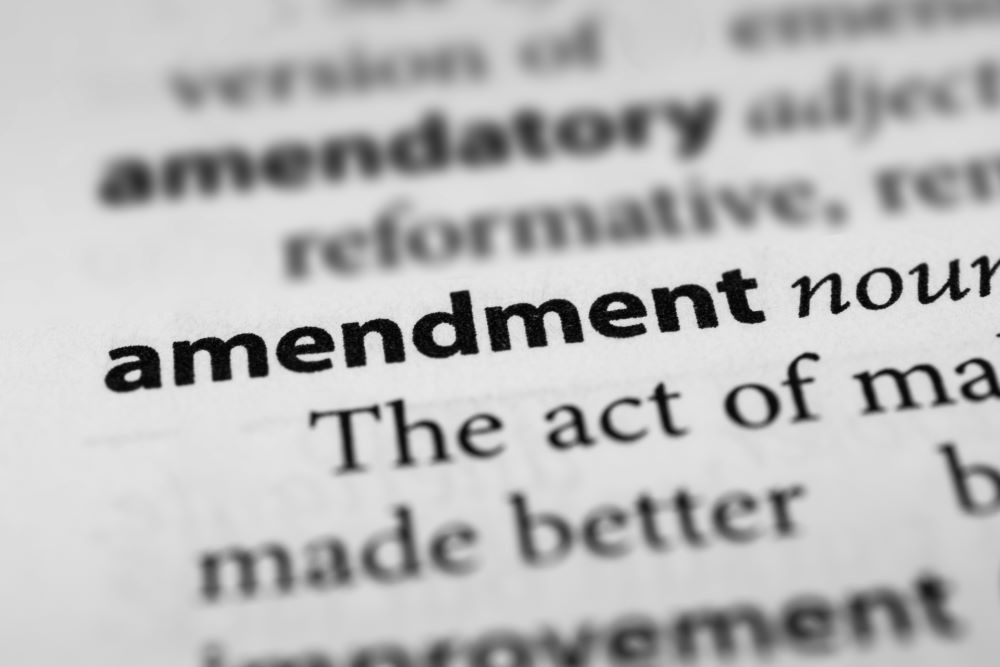SEC Proposes Exemptive Relief for Finders
At its October 7, 2020 open meeting, the Securities and Exchange Commission (the “SEC”) voted to propose exemptive relief for certain finders engaged in raising capital from accredited investors. If the proposal is adopted, it would allow them to receive commissions and other transaction-based compensation without registration as a broker-dealer under Section 15 of the Securities Exchange Act of 1934 (the “Exchange Act”).
The measure will apply only to finders who wish to assist issuers engaged in offerings that rely on exemptions from registration under the Securities Act of 1933 (the “Securities Act”) such as Regulation A, Regulation D, or Regulation Crowdfunding. In all cases, the finders must deal only with individuals or entities they reasonably believe to be accredited investors. Read More
Can I Use an Online Portal For My Rule 506(c) Offering?
 Online Platforms for Rule 506(c) Offerings
Online Platforms for Rule 506(c) Offerings
The most common exemption from SEC Registration is Rule 506(c) of Regulation D which provides for two unique exemptions from SEC registration that allow the issuer to raise unlimited amounts of capital if it complies with the specific requirements of each rule. Rule 506(b) permits sales to up to 35 non-accredited investors and an unlimited number of accredited investors while Rule 506(c) allows sales to be using general solicitation and advertising so long as the issuer verifies that all investors are accredited purchasers. The JOBS Act provided a limited exemption for online investment platforms from registration as a broker-dealer for certain offerings made pursuant to 506(c) of Regulation D. This exemption from broker-dealer registration is available if the person: Read More
SEC Amends Regulation S-K Item 101, 103 and 105
On August 26, 2020, the Securities and Exchange Commission (the “SEC”) finalized its proposed rule amending the disclosure requirements under Items 101, 103, and 105 of Regulation S-K. The revisions to Regulation S- K modernize SEC disclosure requirements and provide investors with more meaningful information about an issuer’s business, legal proceedings, and risks of an investment in the issuer’s securities. They also reduce the burden on issuers to disclose certain information that might be immaterial to the issuer’s business. Items 101, 103 and 105 have not been substantially revised for over 30 years. Issuers conducting direct public offerings or filing registration statements on Form F-1 or Form S-1 should be aware of these changes and adjust their filings appropriately.
The revisions to Regulation S-K will become effective 30 days after the final rule is published in the Federal Register. Read More
SEC Amends Accredited Investor Definition – Rule 506 Offerings
New Accredited Investor Rules
Rule 506 Offerings are the most common of the Regulation D exemptions from registration under the Securities Act of 1933, as amended (the “Securities Act”). Rule 506 contains two distinct offering exemptions. Rule 506(b) and Rule 506(c). Rule 506 (b) provides an exemption to an unlimited number of accredited investors and up to thirty-five non-accredited investors without the use of general solicitation and advertising while Rule 506(c) allows the issuer to sell to an unlimited number of accredited investors so long as it verifies that each investors is an accredited investor.
The first question most issuers ask when considering an offering under Rule 506 is “what is an accredited investor”?
Among other requirements, Rule 506(b) allows sales of securities to up to 35 non-accredited investors while Rule 506(c) allows sales to an unlimited number of accredited investors. The SEC’s amendment to the definition of Accredited Investor now includes knowledge-based criteria. The SEC Amendment expands the definition of “accredited investor” in Rule 501(a) to include the following: Read More
SEC Says toxic funder John M. Fife is an Unregistered Dealer
On September 3, 2020, the Securities and Exchange Commission (“SEC”) filed an enforcement action against John M. Fife and five entities he owns and controls: Chicago Venture Partners, L.P. (“CVP”), Iliad Research and Trading, L.P. (“Iliad”), St. George Investments LLC (“St. George”), Tonaquint, Inc. (“Tonaquint”), and Typenex Co-Investment, LLC (“Typenex”). According to the SEC, Fife and his companies had acted for years as securities dealers, but failed to register with the SEC and with the Financial Industry Regulatory Authority (“FINRA”) as the Securities Exchange Act of 1934 (“Exchange Act”) requires.
Fife has operated as what’s called a “toxic lender” for many years. Microcap companies trading on the over-the-counter market typically have limited access to traditional financing. Desperate for cash, they sign on with financiers like Fife who purchase securities—usually convertible promissory notes or convertible debentures—from them. The financiers charge extremely high interest, but that’s the least of their clients’ problems. Upon conversion, the lenders enjoy a discount to market price that may be as high as 60 percent, and higher in the event of default by the issuer. As he converts portions of his note and sells the resulting stock into the market in a series of tranches, the stock’s price plummets. That is why these kinds of instruments are called “death spiral convertibles.” Eventually, the dilution caused by the conversions may force the issuer to reverse split the company’s stock. Sometimes it drives the company into bankruptcy. Read More
Business Identity Theft: State of the Industry Report
What Are They and How to Protect Your Company From Thieves
By Ralph Gagliardi
Identity thieves don’t just target people – they prey on businesses, too. Their schemes vary widely, from the unimaginably complex to the absurdly simple. But in every case, their effects can be devastating to the business involved and its personnel.
Business identity theft is when criminals hijack a business’s name to plunder its assets, credit and/or reputation. The crime comes in a variety of forms, from scammers merely impersonating a business to fraudsters filing fraudulent paperwork to take over a company. However it’s done, the goal is always the same: To exploit the business for the criminal’s financial gain. That can mean purchasing luxury cars or dozens of cell phones on company credit and selling them for a quick profit. It can mean seizing company assets, like a piece of property stashed in a holding company, and transferring it to another business entity, where it’s sold to an unsuspecting third party. Or it can be masquerading as your business to exploit your good reputation and defrauding your current or potential customers. Read More
What Is a Control Person? Control Securities, Resale Requirements
What are Control Securities?
Sales of securities by affiliates and control persons of publicly traded companies are subject to requirements not applicable to other sellers under federal securities laws. Rule 405 of the Securities Act of 1933, as amended (the “Securities Act”) contains definitions of each.
- An “affiliate” of, or person “affiliated” with, a specified person, is a person that directly, or indirectly through one or more intermediaries, controls or is controlled by, or is under common control with, the person specified.
- The term “control” (including the terms “controlling,” “controlled by” and “under common control with”) means the possession, direct or indirect, of the power to direct or cause the direction of the management and policies of a person, whether through the ownership of voting securities, by contract, or otherwise.
SEC Form 3, Insider Reporting Requirements
Anyone who is an insider of a public company subject to SEC reporting requirements (“SEC Reporting Company”) must file a Form 3 with the Securities and Exchange Commission (“SEC”) under Section 16 of the Securities Exchange Act of 1934, as amended (the “Exchange Act”).
Certain events make a person a Section 16 insider:
- When the issuer first lists on the New York Stock Exchange (“NYSE”) or NASDAQ stock market (“NASDAQ”) pursuant to Section 12(b) of the Exchange Act,
- Upon the company’s first registration statement under Section 12(g) of the Exchange Act becoming effective, or
- Upon a person becoming a director or officer or beneficially owning 10% of the company’s securities, directly or indirectly.
SEC Trading Suspensions Under the Securities Exchange Act
SEC Trading Suspensions under Exchange Act Section 12(k)
Section 12(k)(1)(A) of the Exchange Act, grants the SEC the authority to issue trading suspensions for up to 10 business days if it believes the trading suspension is in the public interest protects investors. When the SEC issues a trading suspension pursuant to Section 12(k), trading in the security is halted for the period set forth in the order which is typically the full 10 days. Once the trading suspension is over, few companies resume normal trading activity.
If issuer’s securities are listed on a national securities exchange such as the NYSE or NASDAQ, they will resume trading after the trading suspension ends. For companies quoted on the OTC Markets, resuming trading is not as easy. OTC Markets issuers must locate a market maker to submit a Form 211 in compliance with FINRA Rule 15c2-11. Few market makers are willing to assume the liability of filing a Form 211 for a company that has been suspended by the SEC. Read More
Regulation CF Crowdfunding and SEC Reporting After the Offering
After an issuer completes a Regulation CF crowdfunding offering, it must comply with certain ongoing reporting obligations. Unlike public company SEC reporting requirements, Regulation CF’s ongoing reporting requirements consist of only one filing annually.
Regulation CF Issuers Required to File an Annual Report on Regulation C-AR
An issuer that sold securities in a Regulation Crowdfunding offering must submit an annual report on Form C-AR to the SEC through Edgar no later than 120 days after the end of its fiscal year. Form C-AR must be also be posted on the company’s website. Form C-AR requires information similar to what is required in the Form C offering statement which we discuss here; however, the issuer is not required to obtain an audit or review of its financial statements. Read More
Rule 504 Offerings – Regulation D Attorneys
RULE 504 – LIMITED CROWDFUNDING
Securities offerings under Rule 504 of Regulation D of the Securities Act may prove useful to founders of startup and small companies. One of the most difficult times for these companies is when the company is founded. Often the founders will have limited capital with which to fund their new business. Under Rule 504, the company can raise up to $5 million in a 12 month period without filing the offering with the SEC prior to sale. One important limitation of Rule 504 is that it is not available to public companies subject to SEC reporting requirements.
Unlike securities sold in an offering registered with the SEC on Form S-1, companies offering securities in reliance upon Rule 504 submit an SEC filing on Form D 15 days after the first sale of securities. Issuers must still comply with state blue sky requirements. Issuers conducting offerings under Rule 504 should follow the rules below to avoid disqualification of their offering exemption. Read More
SEC Provides Form S-3 Coronavirus Relief – Securities Lawyer 101
The SEC’s Division of Corporate Finance recently provided new COVID-19 related guidance in the form of Frequently Asked questions for issuers using Form S-3 registration statements. The SEC previously provided relief to issuers impacted by coronavirus which are unable to file timely because of “circumstances related to COVID-19 ( the “COVID-19 SEC Order”).
The SEC’s relief included conditional 45-day extensions to submit certain SEC reports and filings that had original deadlines between March 1 and July 1, 2020. The new SEC guidance provides relief to issuers relying on Form S-3 registration statements to register securities. For issuers who qualify, Form S-3 is the most cost- and time-efficient registration statement to prepare because it allows issuers to incorporate certain disclosures previously filed with the SEC. Read More
Public Company SEC Reporting Requirements -SEC Requirements to Go Public
A public company with a class of securities registered under either Section 12 or which is subject to Section 15(d) of the Securities Exchange Act of 1934, as amended (“Exchange Act”) must file reports (“Public Company SEC Reporting Requirements”) with the Securities and Exchange Commission (the “SEC”). These Public Company SEC Reporting Requirements keep investors and market participants informed about important information about the issuer. Reports and filings made with the SEC can be viewed by the general public without charge on the SEC’s website.
Companies subject to Public Company SEC Reporting Requirements must file Annual Reports on Form 10-K, Quarterly Reports on Form 10Q’s and Current Reports on Form 8-K. As discussed below, certain issuers must file proxy statements and other reports and their officers, directors and certain large shareholders must file beneficial ownership reports with the SEC. Read More
Expedited Regulation Crowdfunding Offering Rules For Coronavirus Impacted Issuers
SEC Provides Rules Allowing Expedited Regulation Crowdfunding Offerings
On May 4, 2020, the Securities and Exchange Commission (the “SEC”) temporary conditional relief for certain companies affected by COVID-19 that may seek to meet their funding needs using Regulation Crowdfunding aka Regulation CF. The rules are designed to expedite the crowdfunding offering process for eligible companies by providing them with relief from certain rules with respect to the timing of Regulation Crowdfunding offerings and the financial statements requirements.
To use the temporary rules, a company must meet enhanced eligibility requirements and provide clear, prominent disclosure to investors about its reliance on the relief. The relief will apply to offerings launched between the effective date of the temporary rules and August 31, 2020. Read More
Section 4(a)(7) Resale Exemption – FAST ACT
Reselling Restricted Securities – SEC Exemption Section 4(a)(7) – FAST ACT
The Fixing America’s Surface Transportation Act (FAST Act), which was enacted on December 4, 2015, includes a resale exemption for private placements of securities. Under Section 76001 of the FAST Act, Congress codified an exemption for certain resales of restricted securities as Section 4(a)(7) of the Securities Act. The FAST Act provides that any sale made in compliance with Section 4(a)(7) will not be a distribution under Section 2(a)(11) of the Securities Act. The Section 4(a)(7) exemption is available for private resales of restricted securities to “accredited investors” where no general solicitation is used and certain information concerning the issuer and the transaction is provided to the Purchaser.
One significant benefit of Section (a)(7) is that unlike the Section 4(a)(1½) exemption, state blue sky laws are preempted. Read More


































